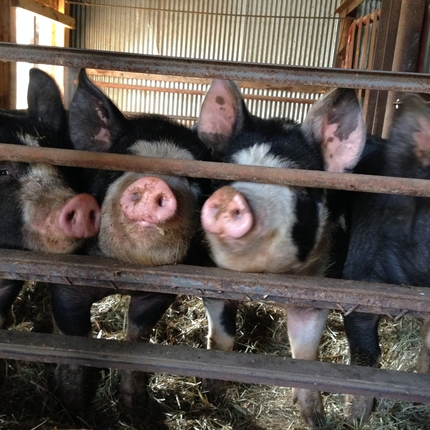We are deep in the throes of the COVID-19 pandemic. At this point, keeping track of the challenges we’ve faced is difficult. Everyone knows someone who has been ill with COVID-19. Too many know someone who has died.
At the same time, there is hope on the horizon. Vaccines that appear both safe and effective are coming online.
Still, it can be difficult to see what the future holds. We stand at a crossroads, trying to make sense of where we are, how we got here, and what comes next. At this crossroads, one thing is clear. The pandemic has exposed the fault lines of inequity more starkly than ever before.
The challenges we face have been building for a long time. The pandemic has brought clarity to what we must consider as we rebuild. We have an opportunity to build a better and more resilient future.
Now is the time to consider more localized and regional solutions, to reduce our reliance on multinational corporations, and build communities that work for everyone.
The Center has long proposed many of these strategies. For instance, we first warned of the fragility of vertically integrated meat production in 1974, issuing the report, “Who Will Sit Up With the Corporate Sow?”
For decades, farmers and rural communities struggled with the consequences of vertical integration in the livestock sector. When the pandemic hit, the vertically integrated and highly industrialized industry model proved to be fragile.
Meatpacking workers fell ill at alarming rates. Packing plants slowed down and prices for remaining independent producers slumped.
Almost overnight, small local meat processors were overwhelmed with business. Reports of local lockers running seven days a week and booked for more than a year out were common.
We discovered that smaller businesses, closer to home, and controlled by people in our community were, in fact, more resilient than multinational corporations.
In this fragility, we see an opportunity to build a more resilient future.
This is the basis, for instance, of the federal Strengthening Local Processing Act, developed with supporters and allies, and backed by the Center. The bill would support the establishment and expansion of small, independent meat lockers in our communities.
This is one example of how we can shift our thinking. The same is true for where we get our groceries, for the banking and financial sector, for how we protect low-income workers, and for the climate.
The pandemic highlighted the fragility and inequities of our current systems. Now, we have an opportunity to build a more resilient future. Will you join us in the hard work ahead?





